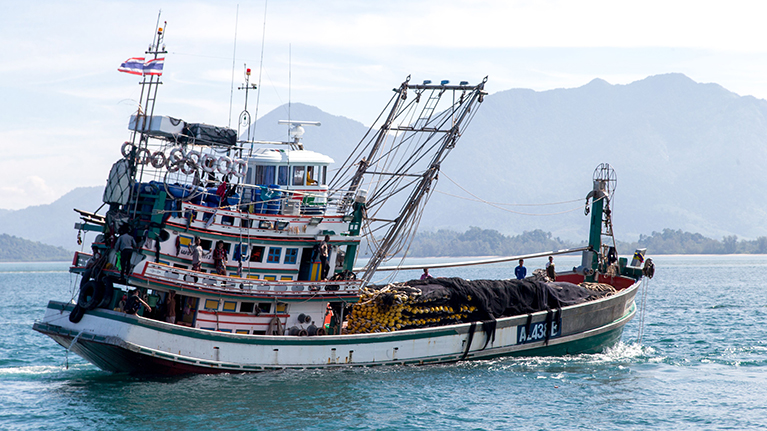Since Thailand ratified the International Labour Organization’s 2014 Protocol to the Forced Labour Convention (P29), conditions for workers in the country’s seafood and fishing industry have improved. The ILO’s Ship to Shore Rights project has supported the Thai government in implementing the changes.
Chith “Jed” Poth was just 17 when he migrated from Cambodia to work in the Thai fishing industry in 2007. At the time, serious labour abuses in the Thai fishing industry were ignored or missed by the authorities. Those abuses included the withholding of wages and the confiscation of passports – classic signs of possible forced labour situations.
However, Thailand’s 2018 ratification of the Protocol of the Forced Labour Convention (P29) – the first in Asia – marked an important shift. The decision to ratify the Convention was designed to send a signal to workers, employers, key trading partners, and neighbouring countries that Thailand intended to join the global movement confronting the problem of forced labour.
ILO legal experts and the EU-funded ILO Ship to Shore Rights Project provided analysis and extensive technical support to the Thai government, employers and workers as they debated the ratification of the Convention, and how to fill the gaps in Thai law on forced labour.
The changes made to the Thai Anti-Trafficking Act were a product of a months-long tripartite debate. The ILO’s partners generally acknowledge that – even when the decisions do not go their way – policy is smarter, more effective and more comprehensive when workers’ organizations and employers are part of the debate.
Jed says that on his vessel “things are much better. There has been a great improvement, especially with the pay being more consistent and much higher. The workload is now better scheduled and we have more rest time.”
The new forced labour amendments driven by Thailand’s ratification of the Protocol can go a long way to making it clear to employers, workers labour inspectors, prosecutors, and judges how urgent the problem is, how to identify it, and how to end it. However, challenges remain, especially in making changes to employer practices, and to Thai government rules and the effective enforcement of the new rules.
“In the past, if we were sick or injured, we can only go to the hospital if the skipper or vessel owner allows us to. Now my employers care more about our health and well-being, and I can visit the hospital using my social insurance,” said Jed.
These improvements are found in some ports and absent in others. A cause for hope is the union organizing effort called Fishers Right Network (FRN), supported by the International Transport Workers' Federation (ITF). Jed and more than one thousand other migrant fishers in Thailand now have a better understanding of their rights, and are working together to change their industry. However, Thailand’s has not yet ratified core ILO Conventions 87 and 98 and laws blocking migrants from building and leading unions mean that full rights for these workers – and through them an end to forced labour – are still to be realized.
Source: ILO
www.facebook.com/tcijthai
Tags






